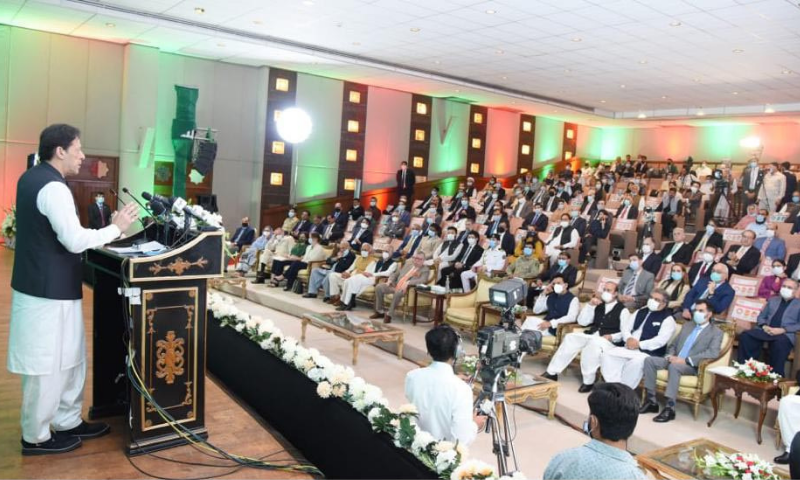
In a bid to provide relief from the 22 percent increase in the prices of commodities, PM Imran Khan announced a 40 percent subsidy for the poor as part of the Kamyab Pakistan Programme (KPP). The aim is to provide a buffer after which, the beneficiaries of the initiative are expected to become self-sufficient. Whether this objective is achievable remains questionable; the government can absorb the costs for only so long. Alternative solutions must be explored after thorough research on why inflation is rising at unprecedented rates and how to limit it.
The project will provide subsidies on wheat, flour, sugar and oil for all those who are eligible for the Ehsaas Programme and while this segment floods utility stores, there is a significant portion of the population that is still losing out. Those just slightly above the poverty line, lower-middle class and the middle class still battle the plague of unaffordability because the root cause of inflation is not being dealt with. Instead, all efforts are being directed towards mitigating the damage so that the problem does not seem as urgent as it is.
Prices are increasing domestically because the import of basic commodities—produced locally previously—has sharply increased, with wheat and sugar taking a significant toll. It seems as though the government is absorbing Rs400 billion in revenues through the provision of subsidies. Surely, this is not a sustainable model for growth nor the provision of relief to the underprivileged.
All over the world, subsidies are targeted and utilised for the short term only. They are used to spark a change in behaviour that solves particular problems rather than long-standing issues like poverty and an omnipresent trade deficit. Until and unless the government fixes this core problem of low exports, high imports, poor agricultural output and currency devaluation, not much will change. The hardships of the poor will remain to be dealt with at a later stage, if not now. This is a cyclical trap that we have found ourselves in and to break free of it, other solutions must be employed.
Source: Published in The Nation


